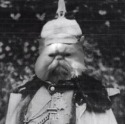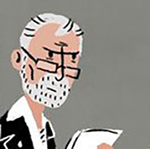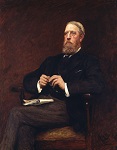|
The Liturgical Christianity Megathread This is a spinoff from MoraleHazard's Ask Me about Being a Catholic thread, which quickly grew to include posters of many different liturgical Christian denominations. I thought that it would be a good idea to start another thread that was deliberately about all these groups, rather than accidentally, more along the line of the Buddhism megathreads (which have an excellent OP) or the Muslim thread. What do you mean by "liturgy"? Almost all branches of Christianity involve some kind of ritual. Frequently, a distinction is drawn between liturgical and non-liturgical Christian denominations on the basis of the elaboration of their rituals or their antiquity—Eastern Orthodoxy would be a "liturgical" Christianity, since its highly elaborate rituals date from Byzantine times, while the rituals of your local megachurch would neither be particularly elaborate nor very old. (The Quakers, whose practice is kind of old but deliberately non-elaborate, wouldn't be liturgical either, although that's apparently debated.) Moreover, while almost all instances of public, communal worship involve at least some routine, what some of the oldest branches of Christianity have in common is their stress on the ritual of the Eucharist—celebrated in the Divine Liturgy, Mass, or Divine Service—as the central element of their religious practice. Most of these religions believe that the bread and wine used in this ritual literally become the body and blood of Christ. Therefore, these religions are also "liturgical" in the sense that the liturgy is important to them in a way that it isn't to other Christian denominations. It's no coincidence that the groups which believe that the liturgy is the most important part of their religion are the groups which have kept, or developed, highly elaborate services, highly decorated churches, and rich vestments.  The Comper Chasubile, commissioned by an Anglo-Catholic c. 1900:  http://www.newliturgicalmovement.org/2010/08/sir-j-ninian-comper-and-sisters-of.html Ethiopian priests:  The liturgies themselves, in the sense of the specific prayers said and actions performed, vary. Broadly speaking, there are commonalities among the various denominations of Western Christianity, which have a common origin in what was later called Roman Catholicism, and also among the various Eastern Christian denominations. Unlike some other branches of Christianity, these denominations all have a set outline, a "script", that they follow in their services. While there are different texts for different days, the overall pattern of activities is always the same, and can be extremely complex. Among the Catholics and the Orthodox, this ritual is the important part, not instruction by the priest/minister. Sermons in these denominations are optional, and often very brief. Also, here the ritual seems to be important more for its own sake than for what the congregation thinks about it--I've been to several Orthodox churches where some people ignored what was going on at the altar to pray alone, and the old Catholic woman praying the rosary at Mass is a common stereotype. While the ritual is also regarded as more important than reading the scriptures, there are set Biblical texts for every day, which are read out during the service—the idea that Catholics or the Orthodox never encounter the Bible or are deliberately kept from it is a false one. In addition to the Mass/Divine Liturgy, these churches also regard the sacraments as important. Although the number varies from denomination to denomination (the Catholics have seven because it was a holy number in the Middle Ages when that was codified; the Orthodox have seven but can't agree on what they are; and the Lutherans have two), sacraments are regarded as actions through which God is present. Catholics and Orthodox also believe that things can convey the grace of God, like holy water, holy oil, icons or holy statues, or blessed objects. These denominations have different outlooks on the world and on politics; in the United States, at least, the Episcopalian Church is quite liberal, while the Catholic Church's hierarchy is very conservative—but individual Catholics can often be pretty liberal. However, I think we have certain things in common, such as respect for antiquity, dedication to learning, and a generally moderate approach to politics (my own church, the Orthodox Church in America, literally prohibits members of the hierarchy from engaging in politics as representatives of the church). While we definitely have our problems, in my opinion this approach is healthier than the anti-intellectualism and rabid conservativism displayed by American evangelical Protestants. Your milage, as always, may vary. Why Study Liturgical Christianity?
What Not to Do In This Thread Like I said earlier, opinions vary among denominations and also within them. Respect that and respect one another.
HEY GUNS fucked around with this message at 12:11 on Nov 14, 2013 |
|
|
|

|
| # ? Apr 26, 2024 16:52 |
|
A list of denominations, with the goons who belong to them You will be added to this list only if you ask to be. Catholic (Roman, Part 1)--You probably know about this. They're the ones with the Pope. The split between them and the Eastern Orthodox Church is formally dated to 1054, although cultural and political differences had divided the two long before.
Catholic (Roman, Part 2)--After the church switched to what's called the Novus Ordo rite, as well as the use of vernacular languages in the Mass, some Catholics split off because they wanted to retain the Tridentine rite as well as the use of Latin. There are a number of Tridentine-rite Catholic groups around today; some are in union with the Vatican, some aren't, and some are "sedevacantist," meaning that they believe the current pope is not valid. These groups range from normal people who like the old liturgy to complete frothing nutjobs like Mel Gibson's father's church. I used to be a Tridentine-rite Catholic (not one of the nutjob groups) and my mother still is. Her church is in union with the Vatican, but it used to be schismatic.
Catholic (Other, Part 1)--There are over 20 different Christian groups which are in union with the Catholic Church, meaning that they acknowledge the authority of the Pope as head of the Church, and the Catholic Church regards their sacraments as valid. These groups fall under seven non-Latin, non-Roman traditions (by which I mean rites--the kinds of liturgies they practice, what their calendars look like, etc): Armenian, Byzantine, Coptic, Ethiopian, East Syrian (Chaldean), West Syrian, and Maronite. Some of them, like the Ukranian Catholics (who are Byzantine Rite), are descended from people who were on the border between Catholic and Orthodox areas and converted to Catholic allegiance while retaining Orthodox practice. Others, like the Maronites, never left their union with the Roman Catholics while the Schism happened around them.
Catholic (Other, Part 2)--"Within Western Christianity,...Continuing Anglicanism, the Old Catholics, the Liberal Catholic Church, the Apostolic Catholic Church (ACC), the Aglipayans (Philippine Independent Church), the African Orthodox Church, the Polish National Catholic Church of America, and many Independent Catholic churches, which emerged directly or indirectly from and have beliefs and practices largely similar to Latin Rite Catholicism, regard themselves as "Catholic" without full communion with the Bishop of Rome, whose claimed status and authority they generally reject." (Wikipedia) This is a large and heterogeneous group of people, many of which have great histories. At least one of them is a bunch of Theosophists, which rules. And one of them is the group that canonized Coltrane.
Eastern Orthodox—The religion of the Byzantine Empire, since spread to Eastern Europe. Different national groups or jurisdictions (Russian, Greek, etc) are not different denominations; the Greeks are "in union with" the Russians, which means that a congregant from one can receive the sacraments of the other. Schisms usually occur over jurisdictional issues or minor issues of practice (or as a stalking horse for secular politics), not doctrinal differences. The hard core of the Church's belief is the Nicene Creed and the first seven Ecumenical Councils—beyond that, there is a wide variety of different opinions, beliefs, and customs. While all the "autocephalous" churches run themselves, the highest-ranking prelates in the Church are the Patriarchs of Constantinople, Alexandria, Antioch, and Jerusalem. We respect them, but my own church doesn't answer to any of them. There used to be five Ancient Patriarchates; the first was Rome, before the Great Schism.
Oriental Orthodox—The ancient Christianity of north Africa, India, and the Middle East. They recognize only the first three ecumenical councils—the First Council of Nicaea, the First Council of Constantinople and the First Council of Ephesus. Other Christians believe they are Mopnophysites; they reject this characterization, saying that they believe Christ's divine and human natures are blended. Edit: Many scholars believe this position is compatible with that of the other Orthodox Churches, and efforts are underway to unify the Oriental Orthodox and the Eastern Orthodox. The Copts I've talked to--if they know that there's a difference between us at all--regard the entire controversy as an unfortunate misunderstanding, and are shocked to learn that we think they're Monophysites. This group consists of the Coptic Orthodox, Ethiopian Orthodox, Eritrean Orthodox, Syriac Orthodox, Malankara Orthodox Syrian Church (Indian Orthodox Church) and Armenian Apostolic churches. The Copts also have a pope, who's less mainstream than the Catholic one.
Assyrian Church of the East--a Syriac Church which is not in communion with any other churches, either Eastern Orthodox, Oriental Orthodox, or Catholic. I don't know what their deal is, so I'd love it if someone from that religion came here and told us about it! 
Lutherans—The oldest current form of Protestantism, founded by Martin Luther in the 16th century, since spread throughout Germany, Northern Europe, and the United States. Unlike other liturgical Christians, Lutheran doctrine asserts "sola fide," the justification by faith alone, and "sola scriptura," that doctrinal authority comes not from church custom but from Scripture. However, to the outside observer a number of Lutheran beliefs and practices look similar to other liturgical Christian denominations, such as a stress on ritual (I read an early modern German text in which a man went to a Lutheran mass by accident and only realized that it wasn't Catholic halfway through—which means that it must have been in Latin) and the belief that the bread and wine is the body and blood of Christ.
Episcopalians/Anglicans—The good guys in Hellsing. Although Henry VIII rejected the authority of Rome in 1534, it was not until Elizabeth's reign that they figured out what this was going to mean—that this church was "Catholic" in the sense that it views itself as possessing apostolic succession and bases itself on the teachings of antiquity, but "Reformed" in the sense that it has been shaped by the doctrinal principles of the Protestant Reformation. They ground their beliefs on the "three-legged stool" of scripture, tradition, and reason, and this third element, the stress on reason and measured debate, has made them (in the late 20th century, at least, once they got some wars out of their systems) a pretty chill group of people. My boyfriend is an Episcopalian/Buddhist, and he's very proud that when the Episcopalians had their gay bishop controversy, two priests from his parish left to debate opposite sides of the controversy, then came back the next week to teach Sunday School together like usual, as friends. Depending on the Anglican, their practice can often be very liturgical. This is an Anglican church built by Anglo-Catholics: 
HEY GUNS fucked around with this message at 23:27 on Feb 5, 2014 |
|
|
|
Information Thanks Mo Tzu Thanks Numerical Anxiety Thanks System Metternich Thanks zonohedron Thanks MoraleHazard Thanks Pellisworth Thanks Smoking Crow Book Recommendations, Alphabetically by Subject and Author  Tell me about books you would recommend and I'll put them here! Tell me about books you would recommend and I'll put them here! Apologetics (Catholic) Theology and Sanity, Frank Sheed. Zonohedron thinks this book is written very clearly, and it's all based on decades of explaining the Catholic faith to crowds that ranged from curious to hostile, so it anticipates a lot of "but what about...?" exceptions. Life of Christ, Fulton J Sheen. This is a chronological spiritual biography of Jesus Christ that Morale Hazard found to be simultaneously profound, sublime, and accessible by an average person. The book isn't a "You should be Roman Catholic because of reasons" type of apologetic work. It is a book that describes Christ as a person. Comparative Religion/Theology of Religions (Theology of Religions is about how Christianity relates to other religions, and is one of the youngest theological disciplines) Christ the Eternal Tao by Heiromonk Damascene. An Eastern Orthodox author's contention that the Tao Te Ching is an earlier form of Christ's message. I haven't read it myself, but I've heard both good things (many of my friends from church like it) and bad things (supposedly, the author knows less about China than he thinks). Introducing Theologies of Religions by Paul Knitter is pretty much essential for understanding what this whole field is about. Do you get mad when you hear a Christian say that anyone who's not a Christian is going to hell, or who gives your Jewish or Buddhist relatives crap? This field is about why that perspective is wrong (for the most part, there's some folks who seek to justify exclusionary views of Christianity but they're very, very uncommon). Mo Tzu can't remember what religion Knitter is, or if he's a pastor. However, his wiki page apparently says he signed "A Catholic Statement on Pluralism and Abortion" and he came under fire from Joseph Cardinal Ratzinger, which would imply Catholicism. An Asian Theology of Liberation and Fire and Water by Aloysius Pieris are essential contributions to both liberation theology and theology of religions. He also has some feminist theology, both concerning Christianity and Buddhism. Amazon is apparently selling An Asian Theology of liberation for fifty dollars, please do not buy his book for fifty dollars if you buy his book, used copies abound on ebay, amazon, and barnes and noble. Pieris is a Jesuit priest who holds a PhD in Buddhist studies from a Sri Lankan Buddhist university, and much of his theology is based on his deep appreciation of Buddhism and the desire to keep Buddhism Buddhist, if that makes sense. Gender and Sexuality Controversies in Queer Theology by Susannah Cornwall is a great introduction to the history and theories involved in LGBT theology. As the title might imply, it assumes some familiarity with queer theory and LGBT theology, so if you're completely new to this you might want to go for Radical Love by Patrick Cheng. His is nowhere near as good, and far too focused on gay male theology to really be a good "introduction to queer theology," but his stuff is good 101 material and he has a great bibliography. Mo Tzu thinks Cornwall is Church of England and Cheng is Anglican. Postcolonial Feminist Interpretation of the Bible, by Musa Dube, is fairly advanced, since Dube is working from both a postcolonial and feminist perspective, but if you're willing to be a little awed Mo Tzu thinks she does a great job doing biblical criticism. Jesus Acted Up is Robert Goss' first book, and it focuses on gay and lesbian issues in Christianity and society from a liberationist perspective. It's not exactly an introductory text and it's over 20 years old at this point so it's a little outdated but it remains a great text for interpreting LGBT issues from the perspective advocated by liberation theologians. Anything by Marcella Althaus-Reid would do the same thing and do it better, but hers is not a good start for people interested in this field. Goss is a former Jesuit priest, currently Metropolitan Community Church pastor, whose services are rooted in the Catholic liturgical tradition. Struggle to be the Sun Again is an Asian feminist book, and while Chung Hyun Kyung is Korean she tries to be pan-Asian. A lot of people in Hope Abundant quote her extensively, for good reason. Hope Abundant, edited by Kwok Pui-lan, is a collection of third world women's theology, and is a great way to get some familiarity with their perspectives. Trans-Gendered, by Justin Tanis, is an unfortunately out of print book so good luck finding it, but it's one of the few books out there that specifically deals with transgender issues from a theological and ministerial perspective and is genuinely positive. Virginia Ramey Mollenkott's Omni-Gender is in print, but Mo Tzu didn't like her work as much as Justin Tanis'. Might be because she's not exactly transgender while Justin is female to male. Tanis was a pastor at MCC, but apparently he's Unitarian Universalist now. History Aristotle East and West: Metaphysics and the Division of Christendom, David Bradshaw. A good introduction to the concept of God's energies, a central idea in Orthodox Christianity, as well as an interesting look at the influence of Aristotle on Christian thought. The epilogue goes a little overboard with anti-Western thought, though, so watch out for that. You will probably need to already be familiar with Greek philosophy to read this, but it's very good. The Barbarian Conversion, Richard Fletcher. How pre-Schism Christianity converted, and was influenced by, the peoples of Europe. Jaroslav Pelikan's series, The Christian Tradition: A History of the Development of Doctrine, is an excellent intellectual history of Christian belief. Liberation Theology Introducing Liberation Theology by Leonardo Boff is another seminal text by a seminal theologian, and it's definitely an accessible text. It's written by the priest who left his order and the priesthood under Vatican pressure. He's married and still Catholic, and his more recent work is focused on eco-justice. God of the Oppressed by James Hal Cone is one of the most important books of American theology, black theology, and liberation theology. Cone's work draws on both the theology he learned in graduate school and the black religious experience in America to speak about Christ's relation to fighting racism and injustice. If you only read one book by Cone, read this one, but if you're going to read his whole library (there's only six books, maybe seven he's written) Mo Tzu recommends that you read them chronologically since this book is the culmination of his life's work. Unlike the other two books, this one is written by an African Methodist-Episcopal pastor instead of Catholic priest, so not technically "liturgical Christianity" but a lot of theologians from those traditions use his work. A Theology of Liberation is one of the classics of liberation theology, and Gustavo Gutierrez is one of the major pioneers of the field. A Catholic Dominican priest. Effortposting in this thread Numerical Anxiety on Church history, part 1 Numerical Anxiety on Church history, part 2 System Metternich on modern Catholic history Mo Tzu on liberation theology Pellisworth on the differences between the various Lutheran groups in the US Smoking Crow on apophatic theology HEY GUNS fucked around with this message at 07:45 on Apr 26, 2014 |
|
|
|
Great OP! Feel free to add me as a Catholic (Roman) Goon.
Thirteen Orphans fucked around with this message at 06:03 on May 20, 2016 |
|
|
|
Good job with the OP, HEGEL. As you know, I'm another Orthodox goon (Antiochian Archdiocese), a recent convert from Judaism. You should probably make it clearer that OO aren't monophysites, and that some scholars think that their Christology is compatible with that of the Chalcedonian churches.
|
|
|
|
"Confessional" Lutheran here. I'll bookmark it, but I don't hafta like it. 
|
|
|
|
Episcopalian here, though sadly my attendance lately has been sporadic. Still, big fan of the BCP.
|
|
|
|
 from: http://www.orthodoxartsjournal.org/medieval-art-from-catalonia/ from: http://www.orthodoxartsjournal.org/medieval-art-from-catalonia/Western Rite Antiochian Orthodox checking in. Moscow Mule fucked around with this message at 06:25 on Jun 11, 2013 |
|
|
|
Moscow Mule posted:Western Rite Antiochian Orthodox checking in. Also, I'd like everyone to note what Moscow Mule posted: that's early medieval Western art, which was obviously produced with an eye toward Byzantium, the unequivocal Best Empire. It may also be leeching. Repost it on an image host like imgur or flickr.
|
|
|
|
HEGEL SMOKE A J posted:Interesting! Did you convert? Is your home parish one of those ex-Catholic or ex-Anglican groups? I'm a convert; all my family is Southern Baptist. My parish started life as an Episcopal congregation They got to a point where they were deciding whether to become Catholic or Orthodox and the parish voted Orthodox. That was well before I joined though, probably in the mid- to late-90s. I think this was before there were any (or many) Anglican groups with alternative jurisdiction, so they didn't take that detour. The picture is on Imgur, but used a tag to make the picture a link to the Orthodox Arts Journal. It's a pretty nifty website for Orthodox iconography. I'll separate the link out though, since a mod might not notice it's not a hotlink. That picture is particularly special because it's reproduced on our church's altar. Our first priest took a vacation to Spain & saw that in the Museu Nacional D'Art de Catalunya. He got a picture of it, brought it back, and one of our church members wrote it onto our altar frontal. Looking at English manuscripts of the same period, they also have a very Byzantine-like appearance. Very pleasing to the eye.
|
|
|
|
I'm fascinated by the Eastern Orthodox, mainly due to all that I've been reading about the Byzantine Empire. However, I know nothing about the faith itself. How much of Byzantine cultural tradition survives in the faith? Is the old empire referred to in any religious texts or rites? What has changed between the fall of Constantinople and modern Eastern Orthodoxy? Have there been efforts to overcome the East-West Schism?
|
|
|
|
karl fungus posted:I'm fascinated by the Eastern Orthodox, mainly due to all that I've been reading about the Byzantine Empire. However, I know nothing about the faith itself. How much of Byzantine cultural tradition survives in the faith? quote:Is the old empire referred to in any religious texts or rites?  ) and there are places in the liturgy where we pray "that this city, and that every city, be preserved from flood, earthquake, fire, invasion, and civil war," etc., and by city you can tell that they don't mean wherever the prayers happen to be being spoken, but The City, Constantinople. (It's also interesting that the prayers are so city-focused--whoever composed them probably didn't believe you could lead a truly worthwhile life outside of an urban context, preferably in Constantinople itself. The wilderness has no takeout joints, and no libraries.) ) and there are places in the liturgy where we pray "that this city, and that every city, be preserved from flood, earthquake, fire, invasion, and civil war," etc., and by city you can tell that they don't mean wherever the prayers happen to be being spoken, but The City, Constantinople. (It's also interesting that the prayers are so city-focused--whoever composed them probably didn't believe you could lead a truly worthwhile life outside of an urban context, preferably in Constantinople itself. The wilderness has no takeout joints, and no libraries.)quote:What has changed between the fall of Constantinople and modern Eastern Orthodoxy? quote:Have there been efforts to overcome the East-West Schism? HEY GUNS fucked around with this message at 07:40 on Jun 11, 2013 |
|
|
|
Jedi Knight Luigi posted:"Confessional" Lutheran here. I'll bookmark it, but I don't hafta like it.
|
|
|
|
Babylon Astronaut posted:Is it true that Lutheranism supports the belief in transubstantiation? I was confirmed in an ELCA church and I never heard about it. Maybe it is different in various synods? I know it's considered rather unique that they give the Eucharist to anyone baptized. When I took the Eucharist at a Catholic mass, I got some strange looks from, oddly, the atheist who dragged me there.
|
|
|
|
Oh ok, that is entirely correct according to the Lutheran catechism. I missed that distinction in the wikipedia article the first time. It's worded strangely in the article on Lutheranism as well. I have a strange Lutheran practice to share: Reformation Sunday! On reformation Sunday, we would send our pastor to perform the mass at the local Catholic church and their Priest would perform our service. Our congregation was very close with theirs as we paraded with them on Palm Sunday. What I'm curious is how this works on the Catholic side. Do most Catholic churches have a Lutheran pastor show up once a year? Babylon Astronaut fucked around with this message at 11:26 on Jun 11, 2013 |
|
|
|
You can stick me in the Roman Catholic column if you like. I'm one of those rarer American Catholics who is religiously orthodox (small 'o') but politically what most Americans would consider "liberal" inasmuch as I hate the Republican party and nearly everything they stand for. If you wanted to pigeonhole me I suppose I'd call myself a Distributist . The only major social issue on which I would be at odds with most liberals would be abortion, I stick with Catholic doctrine on that. Don't worry, I won't talk about that, I only include it here because people seem to be including some sort of brief summary. 
|
|
|
|
Sign me up as a Lutheran too. To be precise, I'm Finnish, so no American-specific questions for me, please.  I'm employed by the church and many of my relatives and friends work there too, their occupations ranging from priests to church musicians to youth workers to deacons to missionaries and whatever so I also have a lot of people to ask from in case I don't know everything. (I do. I'm employed by the church and many of my relatives and friends work there too, their occupations ranging from priests to church musicians to youth workers to deacons to missionaries and whatever so I also have a lot of people to ask from in case I don't know everything. (I do.
|
|
|
|
When I was a kid (around 9-11 years old), I was already an atheist, but to please my mother I went through two years of Catequesis, did my first communion, and even did the sacrament of confirmation. Here in Argentina, first communion is more of a cultural thing than a religious thing. Strong religious feeling are kind of a rarity, all the kids just went along with the stuff because parents, ironically enough the truly religious guys were alienated by the rest because they were seen as weirdos. Fortunately, all the priests and church people I've been in contact with were rather cool about it - I never once in my entire life have witnessed a priest giving mass of the "fire and brimstone" type, it's always the Jesus love message, so I generally respect the regular church priests. I also learned some biblical history thanks to it. The sacrament of Confirmation was interesting. Since the one that has to do it is a Bishop, they carted us all via bus to this huge open public place, where there was easily a couple thousands of people. The bishop did a Mass Confirm from the pulpit, and several assistants were walking around, anointing your forehead with oil. I don't remember much about it, except that we were supposed to be receiving the Holy Spirit.
|
|
|
|
Please add me to the list of denominations under Episcopalians. I've been attending Episcopal churches since I was 5 years old, and have played a number of different lay roles in both the liturgy itself and other church activities, including, but not limited to choir member, acolyte, altar server, and lay reader. Edit: By the way, OP, I am female. 
PurpleButterfly fucked around with this message at 23:35 on Jun 11, 2013 |
|
|
|
Babylon Astronaut posted:Oh ok, that is entirely correct according to the Lutheran catechism. I missed that distinction in the wikipedia article the first time. It's worded strangely in the article on Lutheranism as well. That sounds really uncommon. During holy week we usually have pastors from around the district exchange parishes so to speak, but they're always the same synod. I can only speak for the more conservative LCMS, WELS, and ELS denominations. It might be entirely more common in the fast and loose ELCA, a synod that alienated a significant number of congregations when they allowed openly gay clergy to serve.  As for the Eucharist, forgive me if this is way too dumbed down, but the way I've understood it is that the RCC believe the bread and the wine cease to be bread and wine after consecration and become solely the body and blood, while in Lutheranism the body and blood become "in, with, and under" the bread and wine after consecration--being both at the same time. This is in contrast to most other Protestant denominations who believe it more symbolic than anything else. Luther said that he'd rather drink blood with a Catholic than juice with a Zwinglian [or Calvinist]. Jedi Knight Luigi fucked around with this message at 17:58 on Jun 11, 2013 |
|
|
|
Another for the Catholic (Roman) column! I'm the one who answers questions with Aristotelian-Thomistic philosophy despite not having any formal philosophy education Babylon Astronaut posted:I have a strange Lutheran practice to share: Reformation Sunday! On reformation Sunday, we would send our pastor to perform the mass at the local Catholic church and their Priest would perform our service. Our congregation was very close with theirs as we paraded with them on Palm Sunday. What I'm curious is how this works on the Catholic side. Do most Catholic churches have a Lutheran pastor show up once a year? I have never heard of that happening - and, technically, any Catholics who attended the Lutheran-led service (in whichever church building) didn't even fulfill their Sunday obligation (nor would a Lutheran service led by a Catholic priest have fulfilled it) so I can't imagine it's terribly common. My parents' parish does a joint night-before-Thanksgiving service with an ELCA church, but since even Thanksgiving itself isn't a holy day of obligation that doesn't have the same issues as pastor-swapping.
|
|
|
|
Put me down as Episcopalian, specifically Episcopal Church of the USA (ECUSA). The distinction matters because ECUSA has its own prayerbook distinct from that of the Anglican Communion worldwide, ordains gay and lesbian priests, has an official same-sex marriage blessing, and ordains women as bishops. Within the next few years I expect ECUSA to be explicitly excluded from and/or leave the Anglican Communion over these issues.
|
|
|
|
Put me down as Roman Catholic, though I should say that I'm a transgender Catholic woman and I still have a lot of reservations about belonging to an organization so explicitly against LGBT rights and LGBT people. I'm getting an MA in systematic theology at an eccumenical seminary, and have some training in LGBT/queer theology as well as liberation theology in general and theology of religions/comparative theology. I'd be more comfortable talking about Catholic views of gender and sexuality, but I do have some understanding of other church's views.
|
|
|
|
Catholic here as well; I grew up in Bavaria and currently live in Vienna, where I'm involved with my local parish as a youth group leader and parish council member. I study Baroque Catholicism in Germany (currently writing my MA thesis about a Viennese confraternity); if anyone should (for some bizarre reason) have a question regarding this niche topic, then I'd be glad to help you out!  e: HEGEL SMOKE A J, I meant to ask: where does your avatar text come from? Google doesn't know. System Metternich fucked around with this message at 19:16 on Jun 11, 2013 |
|
|
|
Thank you for the detailed response, HEGEL! By the way, how much do the more distant churches (Oriental, Assyrian) share in common with Eastern Orthodoxy? Like, when did they separate into their own rites? Do they have a common base with the Orthodox, or are they entirely separate lineages?
|
|
|
|
Put me down as Catholic, albeit originally of the, ah, "Anglican Use" variety. I'm the Americanized son of British parents and come from a very Anglo-Catholic Anglican background. I jumped ship to Rome while living in Britain and witnessing a lot of the tensions in the contemporary Church of England up close, as well as while doing a lot of reading in grad school on John Henry Newman and the Oxford Movement. I mostly attend Latin Mass now that I'm back Stateside, but I've still got my copy of the Book of Divine Worship and Our Lady of Walsingham prayer card handy. Fake edit: And before anyone asks, not every former Anglican becomes Catholic over the gay issue (I certainly didn't). You do get a lot who leave over that, but you also get Anglicans who are perfectly comfortable with gays but against the ordination of women and leave, as well as those who leave over liturgical drift, over Rowan William's (former) leadership of the church, after having their own Newman-esque moment etc. It's a mixed bag.
|
|
|
|
karl fungus posted:By the way, how much do the more distant churches (Oriental, Assyrian) share in common with Eastern Orthodoxy? Like, when did they separate into their own rites? Do they have a common base with the Orthodox, or are they entirely separate lineages? My knowledge of the ACotE is quite small, as is the Church itself. The Oriental Orthodox are a much larger communion today, representing the Coptics, Ethiopians, Armenians, Eritreans, Syriacs, and Indians. Each church within the OO communion has its own liturgical rite, whereas in the EO communion, we mostly use the Divine Liturgy of St. John Chrysostom (in different languages). Disregarding cultural differences, the day-to-day lives of Eastern Orthodox and Oriental Orthodox are largely the same. We practice the same spiritual disciplines and have a distinctly "Eastern" approach to theology. Personally, I consider Oriental Orthodox to be fully Orthodox, just not in communion with the Church. Reunion could happen some day, but probably not within my lifetime.
|
|
|
|
System Metternich posted:e: HEGEL SMOKE A J, I meant to ask: where does your avatar text come from? Google doesn't know. Globo-Corp posted:You can stick me in the Roman Catholic column if you like. I'm one of those rarer American Catholics who is religiously orthodox (small 'o') but politically what most Americans would consider "liberal" inasmuch as I hate the Republican party and nearly everything they stand for. HEY GUNS fucked around with this message at 22:26 on Jun 12, 2013 |
|
|
|
I study Ethiopian Orthodoxy, and am happy to talk about it if people are interested. Just don't call them Copts (Although I should say I'm a social scientist and not hugely knowledgeable on theology or on technical liturgical details). karl fungus posted:Thank you for the detailed response, HEGEL! The Oriental or non-Chalcedonian churches split after the council of Chalcedon in 451. The point of contention was the nature of Christ - the official line that the Catholic and Eastern churches still follow is that Christ was of twonatures, both fully human and fully divine, in one. The Oriental position was that Christ was of one nature which was both fully divine and fully human, indistinguishable and inseparable. I'm not explaining it brilliantly but it was a pretty technical quibble and, as with most of these schisms, had just as much to do with politics as theology (well, it was political theology). Plenty of Ethiopian theologians say the issue was mainly of translation - the Greek for 'nature', physis, sounds like something you can have two of, like essences, whereas the Amharic version, bahriy, sounds really weird being anything other than singular. Lots of priests I know say there's no substantive difference in Christology between Ethiopia and, not just the Eastern Churches, but even the Roman Catholic. But that's where the term monophysite come from and it's universally considered an insult. It's come to imply barbarity in a pretty racist way. The preferred term is Miaphysite, which means exactly the same but doesn't have the historical connotations. But the Ethiopian Church was controlled by Alexandria until the 50s, so that's another layer of political stuff - even so there often wasn't much communication between them so Ethiopia has very much developed in its own direction. The most obvious sign of this is probably the importance of fasting, which is central in every part of Ethiopian Orthodox life, and the Marian cult, which is enormous.
|
|
|
|
HEGEL SMOKE A J posted:Hating everything the Republican Party stands for is the orthodox Catholic position, just most American Catholics have been swindled into joining them. In my opinion, this is the worst thing that's happened to the Catholic Church in the US. One time when I was leaving a Catholic church, a woman was handing out Catholic voter guides. While not explicitly stating who to vote for, the guide basically said that if you vote for a candidate who supports gay marriage, abortion, contraceptives, or stem cell research (that is, if you vote Democrat), then you're not a real Catholic. As neither a scholar nor a particularly well-informed individual, I blame Vatican II (low hanging fruit) for this whole "protestantization" that's going on. The Church has been bending over backwards in some areas to appeal to American protestants, and not just "Kumbaya" protestants—the neo-conservative fundamentalist ones too. But I suppose I should stop while I'm ahead and let actual Catholics speak for their Church. Personally, I'm not a huge fan of Republicans, Democrats, or Ron Paul. I'm pro-life (but I'm for non-abortive contraception), pro-gay "marriage" (I would never consider it "marriage" in the sacramental sense, but I'm not so pedantic to insist on it being called a "domestic partnership"), and anti-bullshit. So yeah, there's not really a party I can put my hat in. Rush_shirt fucked around with this message at 23:40 on Jun 11, 2013 |
|
|
|
BIGFOOT PEE BED posted:I study Ethiopian Orthodoxy, and am happy to talk about it if people are interested. Just don't call them Copts
|
|
|
|
thegloaming posted:One time when I was leaving a Catholic church, a woman was handing out Catholic voter guides. While not explicitly stating who to vote for, the guide basically said that if you vote for a candidate who supports gay marriage, abortion, contraceptives, or stem cell research (that is, if you vote Democrat), then you're not a real Catholic.
|
|
|
|
thegloaming posted:Do you study the Church's relationship to the Rastafarian movement, particularly H.I.M. Haile Selassie I, an Orthodox emperor who Rastafari believe to be God incarnate? thegloaming posted:As neither a scholar nor a particularly well-informed individual, I blame Vatican II (low hanging fruit) for this whole "protestantization" that's going on. The Church has been bending over backwards in some areas to appeal to American protestants, and not just "Kumbaya" protestants—the neo-conservative fundamentalist ones too. But I suppose I should stop while I'm ahead and let actual Catholics speak for their Church. I wish there had been a way as a Catholic to approve of what I see as the real benefits of the Second Vatican Council (like the more democratic attitude to authority) without throwing my lot in with the gutting of the old liturgy. It was very hard for me to be a Tridentine-rite Catholic liberal, which is one of the reasons I'm Orthodox now. HEY GUNS fucked around with this message at 00:05 on Jun 12, 2013 |
|
|
|
HEGEL SMOKE A J posted:That must be so odd, you wake up one day and you're the central figure in someone else's religion. Just...awkward. What a profound insight! Could she be... the one?! 
|
|
|
|
thegloaming posted:What a profound insight! Could she be... the one?!
|
|
|
|
Put me down as a non-practicing Roman Catholic. While I'm not super well-versed in the theology, I used to be an altar server and know the loving mass backwards.
|
|
|
|
|
I'm aware of Roman Catholic dialog with both Protestants and Eastern Orthodox, but is there any interaction at all between the various Protestant denominations and the Orthodox?
|
|
|
|
karl fungus posted:I'm aware of Roman Catholic dialog with both Protestants and Eastern Orthodox, but is there any interaction at all between the various Protestant denominations and the Orthodox? Yes, we steal all the would-be RC converts who can't swallow the papacy.
|
|
|
|
Tubba Blubba posted:I used to be an altar server and know the loving mass backwards.
|
|
|
|

|
| # ? Apr 26, 2024 16:52 |
|
karl fungus posted:I'm aware of Roman Catholic dialog with both Protestants and Eastern Orthodox, but is there any interaction at all between the various Protestant denominations and the Orthodox? In the United States, a lot of ex-Evangelicals have joined the Orthodox Church because they are seeking a stronger weapon in the American culture wars. They know that the Church is conservative, which it is, so they expect that the Church is what Americans mean when they say "conservative," which it isn't. (Rod Dreher is probably the most famous.) I am solidly against this, for several reasons: obviously, because I'm so liberal I'm practically a Communist, but also because they're making the Church more Protestant--some of them have no idea who the saints are, for instance, or they speak disparagingly about what they see as superstition but what we see as necessary, integral parts of our religion. Moreover, their attempts to drag the Orthodox Churches into American politics for the right has been very controversial and, in my opinion, counterproductive. The ex-Metropolitan of the OCA was recently forced to step down because he got involved in right wing politics (he was in very thick with Rod Dreher and his faction), and involvement in politics of any kind, left or right, as a representative of the church is forbidden to members of the hierarchy. I'm not up on the Internet drama that surrounded this thing (there is no Internet drama like Orthodox internet drama), but apparently the final straw was when he said that he'd love to see the OCA enter into communion with some right-wing splinter Anglican group.
|
|
|






 "I'm employed by the church and many of my relatives and friends work there too, their occupations ranging from priests to church musicians to youth workers to deacons to missionaries and whatever so I also have a lot of people to ask from in case I don't know everything. (I do.
"I'm employed by the church and many of my relatives and friends work there too, their occupations ranging from priests to church musicians to youth workers to deacons to missionaries and whatever so I also have a lot of people to ask from in case I don't know everything. (I do. 




















